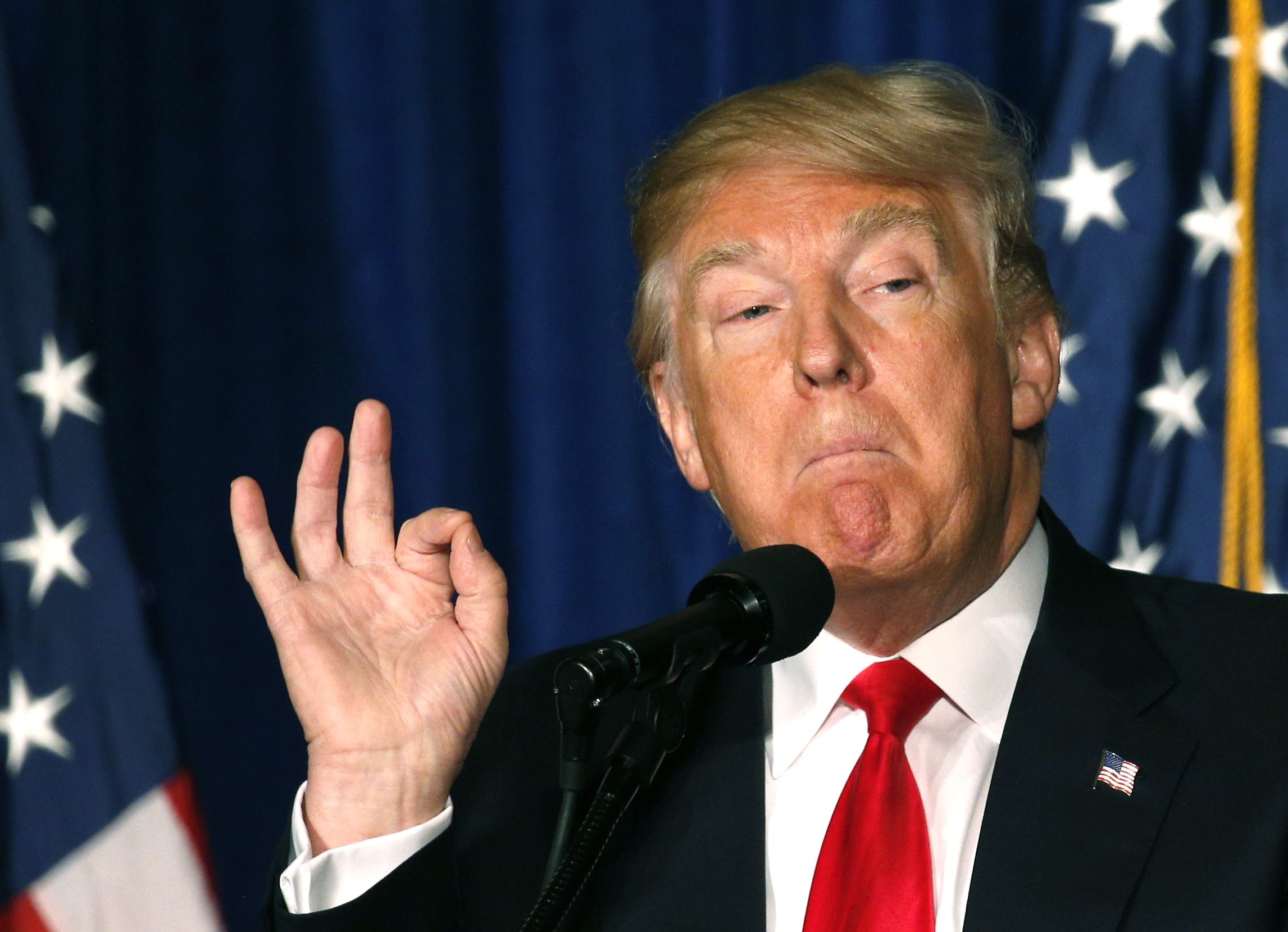
Donald Trump is struggling to clarify his recent statements about how, as president, he would reduce the U.S.'s debt without crippling the economy.
In a May 5 interview with MSNBC, Trump said he would keep borrowing, but "if the economy crashed you could make a deal." The New York real estate mogul and presumptive GOP nominee suggested he might negotiate with the U.S.'s creditors to accept less than full repayment on the $19 trillion it owes them.
"I mean, we have numbers that are beyond belief. We are paying a very low interest rate. What happens if that interest rate goes 2, 3, 4 points up? We don't have a country," Trump said.
But U.S. Treasury bonds are regarded as among the safest investments in the world—"the risk-free asset that underpins the entire global financial system," as The Economist puts it. Were the country to default on even a portion of its debt, or even appear to be willing to do so, U.S. Treasury bonds might be seen as less than risk-free, which would in turn raise the interest rate on loans to the U.S.
Since the U.S. government operates at a deficit, it must borrow to pay off existing debt. If interest rates go up, each loan goes a shorter distance in paying off previous loans. Or, as The Washington Post put it, "since the federal government operates at a deficit, any repurchases would have to be funded through borrowing, and that money would have to be borrowed at an increased interest rate, canceling out any savings."
Trump's understanding of debt reflects his corporate background, but corporations and countries don't manage debt the same way. The New York Times summarized the problem with Trump's proposal last week:
Repurchasing debt is a fairly common tactic in the corporate world, but it only works if the debt is trading at a discount. If creditors think they are going to get 80 cents for every dollar they are owed, they may be overjoyed to get 90 cents. Mr. Trump's companies had sometimes been able to retire debt at a discount because creditors feared they might default.
But Mr. Trump's statement might show the limits of translating his business acumen into the world of government finance. The United States simply cannot pursue a similar strategy. The government runs an annual deficit, so it must borrow to retire existing debt. Any measures that would reduce the value of the existing debt, making it cheaper to repurchase, would increase the cost of issuing new debt. Such a threat also could undermine the stability of global financial markets.
In an interview with CNN's Chris Cuomo on Monday, Trump appeared to walk back his comments, saying he never suggested defaulting on debt. In fact, the U.S. can't default, he argued, because "you print the money."
Economists and pundits from both parties panned Trump's proposal. The New York Times's Paul Krugman said Trump wants to run America "like a failing Atlantic City casino." Newsweek's David Cay Johnston told MSNBC's Chris Hayes that Trump "has not a clue what he's doing." And CNBC analyst Ron Insana said, "This is potentially the most catastrophic thing a presidential nominee can say."
Uncommon Knowledge
Newsweek is committed to challenging conventional wisdom and finding connections in the search for common ground.
Newsweek is committed to challenging conventional wisdom and finding connections in the search for common ground.
About the writer
Taylor is a general assignment reporter for Newsweek where he writes about U.S. politics, crime and courts, religion, marijuana law, ... Read more
To read how Newsweek uses AI as a newsroom tool, Click here.








